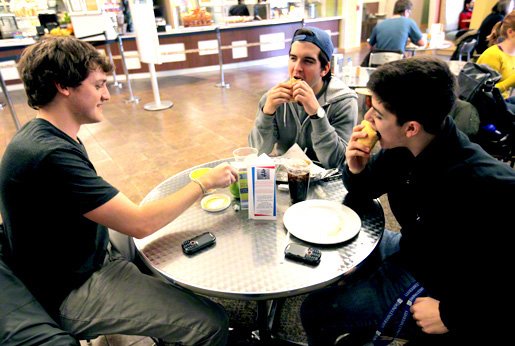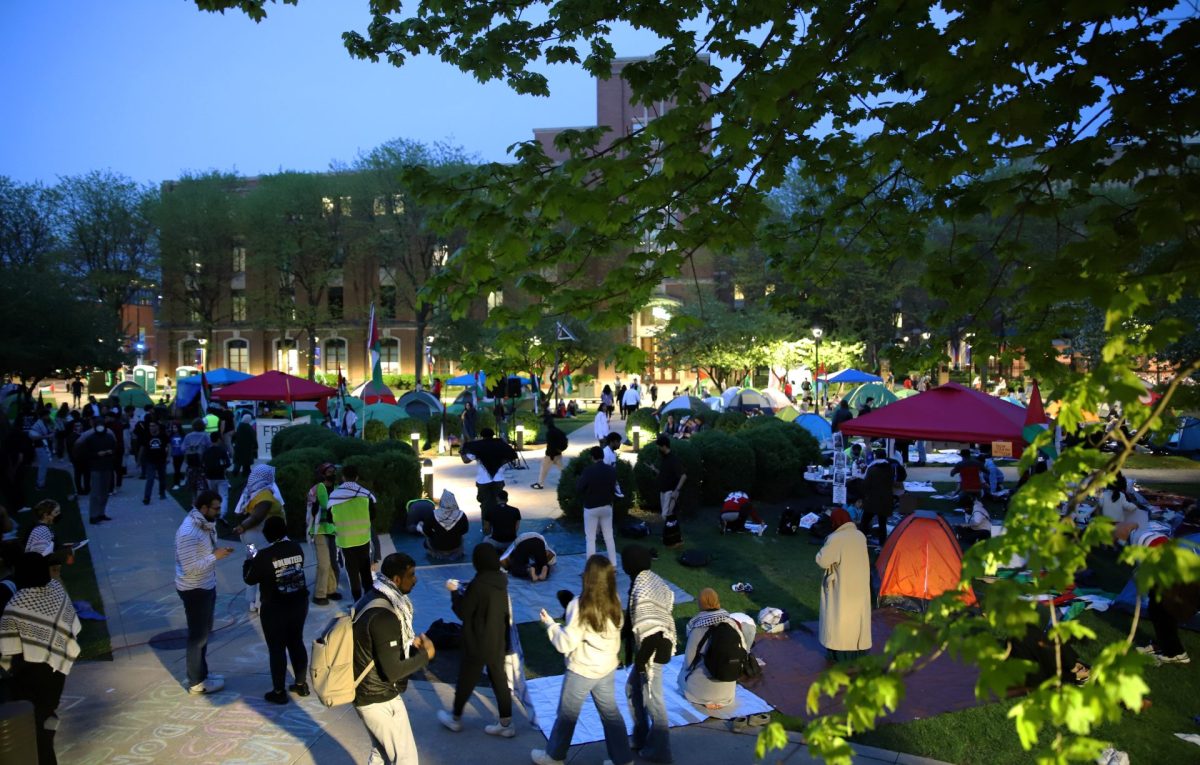
It’s 5 p.m. and the Loop cafeteria is filled with hungry DePaulians. A microwave beeps in the background but goes unnoticed by the 20 or so scattered students sitting on the silver, light-as-air chairs conversing about their day.
DePaul students can eat anything from sandwiches, salads, burgers and mozzarella sticks, but this food is rarely consumed entirely and is instead tossed into the nearest waste container.
Food waste isn’t just rotten food. The United States Department of Agriculture (USDA) defines food waste as any food loss including edible food that is available for consumption but is not eaten. Yet food waste isn’t limited to the university’s cafeterias. Americans all over the country are wasting food at home and elsewhere.
In 2010, food waste accounted for about 31 percent of food loss at the retail and consumer levels in the United States, which amounts to 133 billion pounds of food, according to the USDA. Due to high levels of food waste, there is now an initiative to reduce food waste in the country.
These initiatives include the U.S. Food Waste challenge, which was launched in 2013 by the US Department of Agriculture and the US Environmental Protection Agency to share the best practices to reduce food loss and waste. Farms, grocery stores, restaurants, schools and universities are some entities that reached out to be part of the initiative. Universities like DePaul are also helping reduce, recover and recycle.
“Our company has a program called Imperfectly Delicious Produce, and what they’re doing is they’re working with produce growers’ distributers to use produce that’s not perfectly shaped but it’s perfectly good,” Ken Holbrook, operations director of Chartwells dining services, said.
Last year, Imperfectly Delicious Produce saved 530,000 pounds of produce that would have otherwise been tossed or composted. The program allows DePaul to use the produce on things like shredded lettuce.
To combat food waste, some organizations and businesses also donate usable food to churches, pantries, shelters and soup kitchens. DePaul also donates to their local parish.
“Another thing we do is, we give food to the food pantry at St. Vincent’s, so if we do have anything that’s left over that’s usable, and that is not going to be used for the students, then it’s donating there,” Holbrook said.
Chartwells Dinning Services at DePaul provides the St. Vincent de Paul Parish with monthly allotments of breakfast food, hot dogs and hams, and all of it is distributed to people in the neighborhood, according to Joe Caligan, business manager at St. Vincent de Paul Parish. The majority of food the parish receives consists of canned, dried and frozen goods.
CJ Smith, grill worker in the Loop cafeteria, said there is not a lot of waste since there is very high student traffic throughout the day. According to Smith, there is around five to six pounds of food waste on a given day.
The university also has a corporate program called Trim Trax to help reduce waste in the kitchen. The program has workers throw out food scraps into a clear bin, so they can see if they are cutting up more than is required off of food and what food is being thrown out.
“I think it’s (Trim Trax) pretty good, we have enough waste in the world already,” Smith said.
But Tanya Garritt, a junior law student, thinks DePaul could potentially have a food waste problem.
“I definitely think there’s a disconnect between people producing food and the demand,” Garritt said.
Garritt said there is too much produce being made, such as corn and livestock. The excess of food is a problem, she said, which could potentially create issues even at the university level.
According to Feed America, when food is disposed in a landfill, it rots and becomes a source of methane, which is a dangerous gas that is released into the earth’s atmosphere. To combat food waste in landfills, a lot of organizations and businesses are composting. Composting involves the decaying of organic matter such as food scraps, leaves and even manure to produce fertilizer for soil.
DePaul began composting food scraps in 2012. According to DePaul’s dining service website, they began composting in hopes of “reducing rotting waste in the landfills.”
Today, the composting bins are available for students to throw away their leftover food. Once the food is gathered in these bins, a waste management company picks up the food and brings it to the compost, where the product ends up being sold to hardware stores.
According to Holbrook, in January DePaul composted 1.35 tons of food waste. In February, it composted 6.15 tons of food waste. Composted food waste includes food scraps from production in the kitchen as well as waste from students.
Senior Isolda Aguilar hates wasting food and thinks DePaul needs to tell more students about the bins.
“The university does not remind people to not to waste food or use the bins,” Aguilar said. “They should locate the messages where there is a higher traffic of students passing everyday.”







